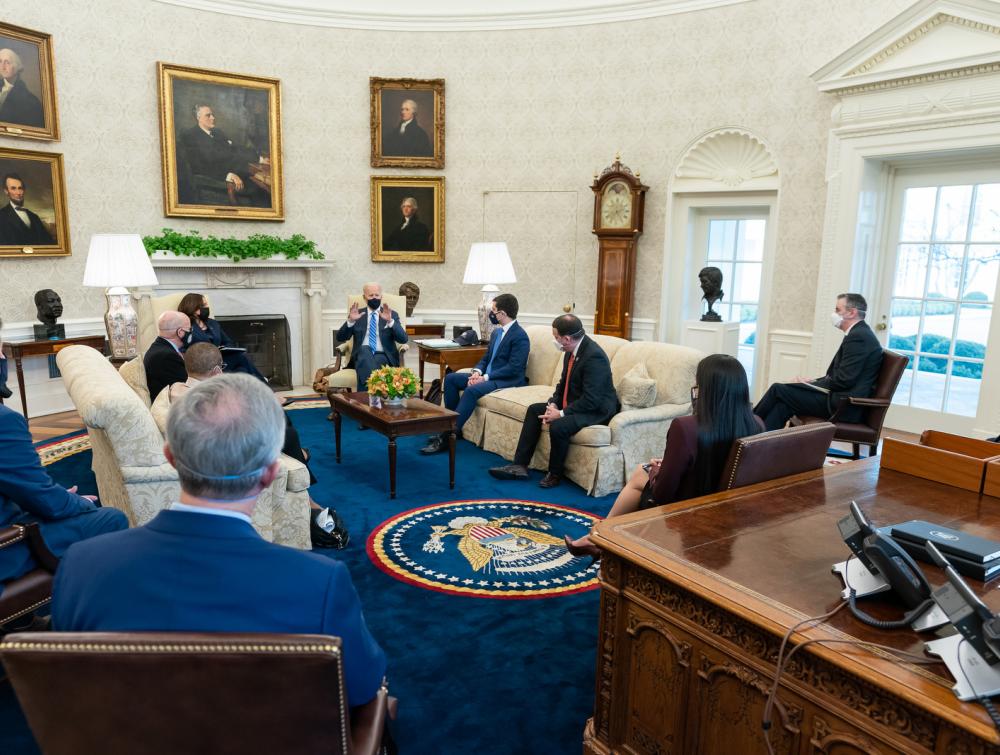Biden-Harris infrastructure plan would ramp up climate solutions on public lands

President Biden and Vice President Harris discuss infrastructure issues with Cabinet members and lawmakers in March 2021
Adam Schultz, The White House, Flickr
Build Back Better plan centers justice, climate and renewable energy jobs
Today, President Biden unveiled his Build Back Better infrastructure plan, which continues his commitment to addressing climate change, conserving and restoring lands and waters, and supporting the nation's transition to a fairer, greener economy. The release of this plan is an important first step in advancing an investment agenda through congress that creates good-paying union jobs modernizing energy, transportation and water infrastructure; investments in restoration and conservation that will make communities and the lands around them more resilient to climate change; renewable energy, efficiency, and energy storage; and the administration’s Justice40 initiative to deliver 40 percent of the benefits from federal climate action and other investments to the communities hit hardest by climate change and pollution and historically least invested in by federal and local governments.
The Build Back Better plan comes on the heels of the Departments of Interior, Energy, Commerce and Transportation announcing their plan to accelerate offshore wind deployment and job creation as part of their mandate to identify steps to double renewable energy production from offshore wind by 2030.
The following statement is from The Wilderness Society's president, Jamie Williams:
"Public lands can and must be part of tackling the climate crisis, conserving the places we love and our country’s transition to a more just, equitable and sustainable economy. We're excited by President Biden's broad infrastructure plan, including investments that would help public lands and waters support racial and economic justice and keep communities healthy and whole.
"Our nation cannot build back better without addressing public lands. We look forward to helping ensure our government doesn’t miss a single opportunity – from ramping up responsible renewable energy development on federal lands and waters to putting people to work in good jobs restoring degraded habitat and waterways, building urban parks and community recreation spaces, and cleaning up tens of thousands of orphaned oil and gas wells across the West."
